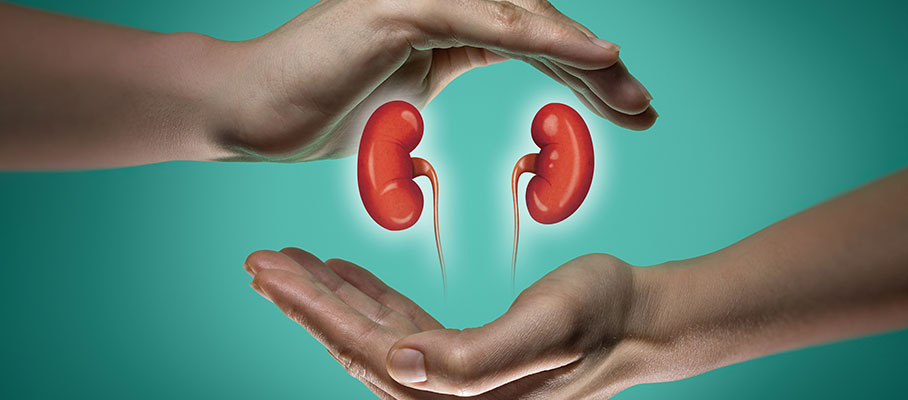BASIC RULES TO KEEP KIDNEY HEALTHY
Maintaining the good health of your vital organs is important for healthy living
1. Maintaining a healthy body weight
Staying fit is really important for your kidneys because obesity can lead to high blood pressure which is bad for your kidney health. Regular physical activity can prevent weight gain, high blood pressure, and the risk of chronic kidney disease (CKD). Reduced physical activity and performance have been observed in CKD patients as compared to the general population. Several studies suggest that exercise involvement can improve several health parameters in CKD patients.
Aerobic activities like walking, running, skiing, jogging, cycling, dancing, and swimming are great for your health. Try to work up slowly for at least 150 minutes every week. But, don’t overexert yourself, be mindful of how much exercise you do. If you are not keeping yourself active now, discuss with a fitness expert before beginning any new workout program.
2. Keep sipping water often
Water helps the kidneys remove toxins from the blood and make your body free of waste material. It also helps in preventing kidney stones and urinary tract infections.
It is a popular belief that everyone should drink eight glasses i.e., approximately 2 liters of water per day, but since everyone’s body is different, daily water requirements also differ from person to person. How much water you require depends on factors like age, climate, exercise intensity, health conditions, etc. Staying hydrated is good for your kidneys but don’t overdo it as no studies have proven that over-hydration can enhance kidney function.
People who have previously had kidney stones are advised to drink a bit more water to help prevent stone deposits in the future. If you have kidney or heart or liver disease, consult your healthcare provider on the adequate water intake for your condition.
3. Do not overdo OTC pills
Prolonged use of over-the-counter (OTC) drugs such as non-steroidal anti-inflammatory (NSAIDS)/ pain-killer (e.g. drugs like ibuprofen) may harm your kidneys.
People with healthy kidneys who take the medicines occasionally are likely in the clear. However, if you have kidney disease or decreased kidney function, taking medicines without consulting a doctor should be strictly avoided.
4. Assess your risk and get tested
If you or your family have a history of kidney failure, diabetes, high blood pressure, or obesity, get your kidney function checked. Also, remember to keep your blood glucose numbers and blood pressure levels close to the healthy goals. Diabetes and high blood pressure both are leading causes of kidney problems.
If you don’t have any symptoms of high blood pressure or diabetes or you are not aware of your family health history, still you could be at risk. So, the best way to know your kidney’s health is to get your health tests done regularly. This helps to identify any health condition at an early stage, and take action to slow or prevent future damage.
5. Eat healthy diet
Healthy food choices can help to maintain ideal body weight, prevent diabetes, hypertension, heart disease, and other conditions associated with CKD. Eat healthy foods like fresh fruits and vegetables, whole grains, and low-fat or fat-free dairy products. Cut down on salt and added sugars. Aim for a low-sodium diet, no more than 2,500 milligrams of sodium a day. Limit your added sugar intake to less than 10 percent of your total daily calories. Check food labels to see how much salt and sugar is in a serving. Don’t eat too much fatty food, restaurant food, processed meats, and other kidney-damaging foods.
6. Quit smoking and limit alcohol intake
Try to quit smoking completely and limit the amount of alcohol you consume. Smoking and drinking alcohol both raise your blood pressure. High blood pressure is one of the most common causes of chronic kidney diseases.
Smoking can damage blood vessels, which decreases blood flow to the organs, including kidneys. When the kidneys have inadequate blood flow, they can’t function optimally. Smoking also increases the risk of developing several cancers including kidney cancer.
When you quit smoking, your risk will drop. Quitting smoking can be extremely difficult, but you can seek the help of an expert to start your smoke free journey now. If you drink alcohol, it is advised to limit your alcohol intake to one drink per day if you are a woman and two drinks per day if you are a man. One drink is roughly 14 grams of pure alcohol found in 12 ounces of a regular beer or 5 ounces of table wine or 1.5 ounces of hard liquor.
Get, set, go!
Now you know the simplest rules that can help keep your kidneys healthy. Remember, they are vital to your overall health and well-being. So, start taking good care of them.

